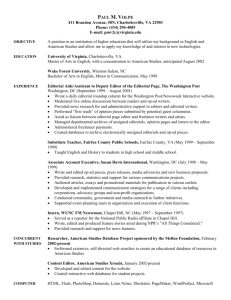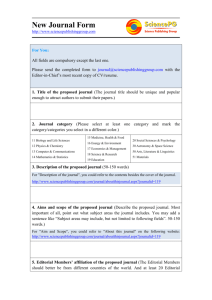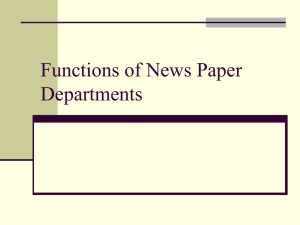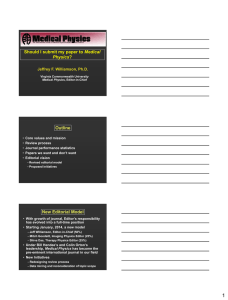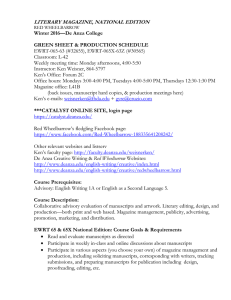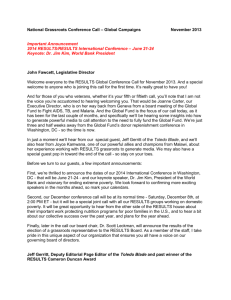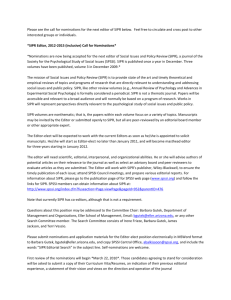Guest Editor Issue Proposal Form
advertisement
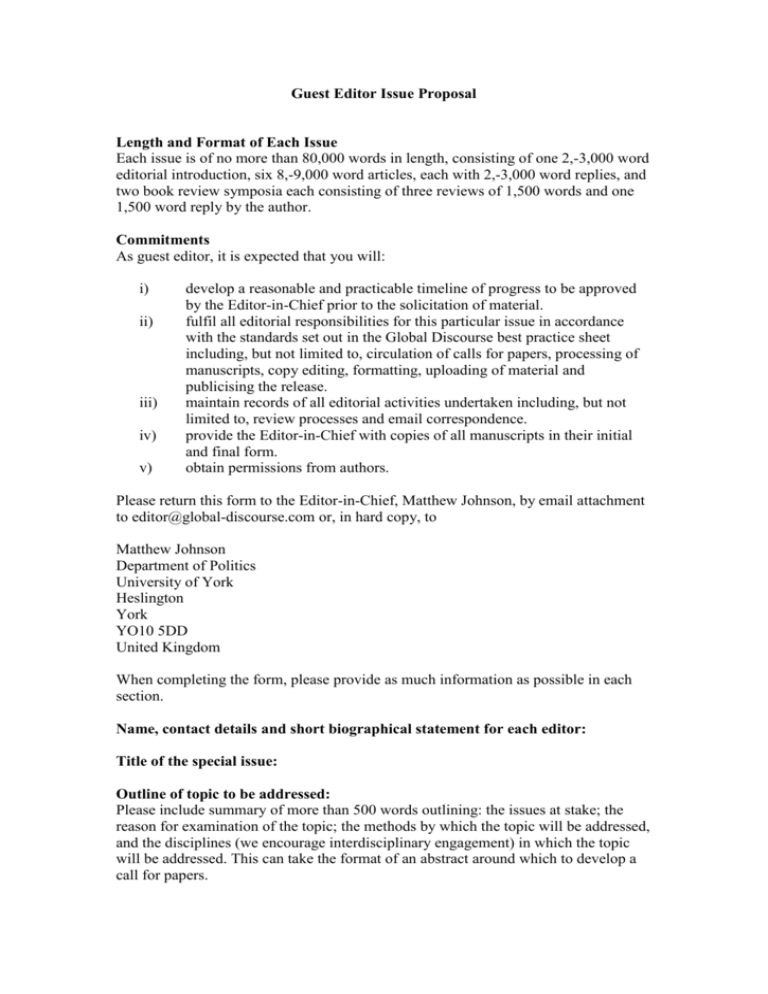
Guest Editor Issue Proposal Length and Format of Each Issue Each issue is of no more than 80,000 words in length, consisting of one 2,-3,000 word editorial introduction, six 8,-9,000 word articles, each with 2,-3,000 word replies, and two book review symposia each consisting of three reviews of 1,500 words and one 1,500 word reply by the author. Commitments As guest editor, it is expected that you will: i) ii) iii) iv) v) develop a reasonable and practicable timeline of progress to be approved by the Editor-in-Chief prior to the solicitation of material. fulfil all editorial responsibilities for this particular issue in accordance with the standards set out in the Global Discourse best practice sheet including, but not limited to, circulation of calls for papers, processing of manuscripts, copy editing, formatting, uploading of material and publicising the release. maintain records of all editorial activities undertaken including, but not limited to, review processes and email correspondence. provide the Editor-in-Chief with copies of all manuscripts in their initial and final form. obtain permissions from authors. Please return this form to the Editor-in-Chief, Matthew Johnson, by email attachment to editor@global-discourse.com or, in hard copy, to Matthew Johnson Department of Politics University of York Heslington York YO10 5DD United Kingdom When completing the form, please provide as much information as possible in each section. Name, contact details and short biographical statement for each editor: Title of the special issue: Outline of topic to be addressed: Please include summary of more than 500 words outlining: the issues at stake; the reason for examination of the topic; the methods by which the topic will be addressed, and the disciplines (we encourage interdisciplinary engagement) in which the topic will be addressed. This can take the format of an abstract around which to develop a call for papers. Will the issue be associated with a particular event? We welcome the association of issues of Global Discourse with conferences, symposia and workshops. However, we do not publish conference proceedings. Each paper published in Global Discourse must have been subject to the standard peerreview process outlined in the best practice sheet. If the issue will be associated with an event, please provide details of the event, including: title; topic; date; venue, and keynote and notable speakers. Please also outline any institutional support for the event. Will the issue be supported by, or associated with, an institution (i.e. school, professional organisation, research body, think tank, charity, etc.)? List of potential contributors: This should include a) an informed assessment of institutions, schools, groups or associations to be targeted in calls for papers and b) a provisional list of specific individuals from whom papers will be solicited directly. List of potential referees: Please remember that each article will be published alongside an accompanying substantive reply of 3,000 words. Potential referees must agree to complete this reply. List of potential monographs for review: Please outline two possible book review symposia. The books must be relevant to the issue. While we expect that books are of recent publication, exceptions can be made for discussion of seminal works which has the capacity, for example, to reinvigorate engagement with a particular field or approach. Proposed timetable: Please refer to the best practice sheet for timetable guidelines. It is expected that 12 months be allowed from initial circulation of call for papers to date for publication. It is wise to allow 4 months from the circulation of the call for papers to deadline for submission of papers, then 6 months for the review of papers and 2 months for proofreading and typesetting. Date for circulation of call for papers: Date for submission of papers: Date for completion of initial editorial assessment of papers: Date for publication: Any further information or questions: Please include here any information you believe to be relevant but not covered elsewhere or any questions you feel need to be addressed directly.
